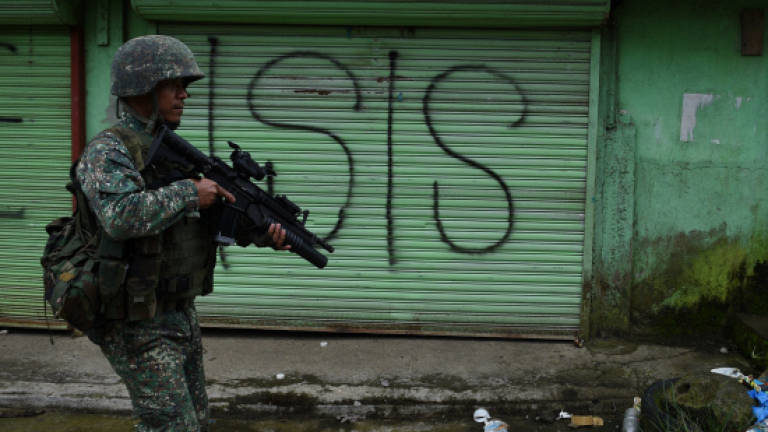Marawi standoff enters third month

MANILA: Two months after militants launched an assault on one of the biggest southern cities in the Philippines, the fighting is dragging on, and President Rodrigo Duterte says he is prepared to wait for a year for it to end.
The defence top brass admits it underestimated its enemy and is struggling to finish off the highly organised, pro-Islamic State (IS) fighters who swept through the city of Marawi on May 23 and have held parts of it despite sustained ground attacks by hundreds of soldiers and daily pummelling by planes and artillery.
On Saturday, lawmakers approved Duterte's request to extend martial law to the end of the year on the island of Mindanao, granting greater powers to security forces to go after extremists with a reach that goes far beyond Marawi.
But it remains unclear how exactly Duterte plans to tackle extremism after troops retake Marawi, where about 70 militants remain holed up in the debris of what was once a flourishing commercial district, along with many civilian hostages.
More than 500 people have been killed, including 45 civilians and 105 government troops.
After missing several self-imposed deadlines to re-take the city, the army says its options are limited because of the hostages.
Duterte has said he had asked the military to avoid more civilian casualties.
"I told them 'do not attack'. What's important is we do not want to kill people," he said last week.
"If we have to wait there for one year, let us wait for one year."
The southern Philippines has been marred for decades by insurgency.
But the intensity of the battle in Marawi and the presence of foreign fighters fighting alongside local militants has raised concerns that the region may be becoming a Southeast Asian hub for IS.
Militants from Malaysia and Indonesia are among those fighting in Marawi.
About five million Muslims live in the Catholic-majority Philippines, mostly on Mindanao.
Defence secretary Delfin Lorenzana indicated on Saturday that after Marawi, the government would strengthen surveillance in the region, widening the net to detect rebel training camps and movements of militants.
"We need communications equipment, high-tech communications equipment that we can use to monitor cellphones of the enemies. We also need drones," he told Congress. – Reuters